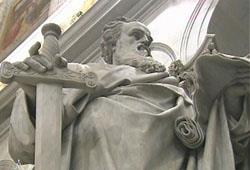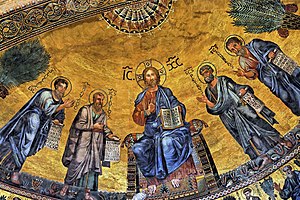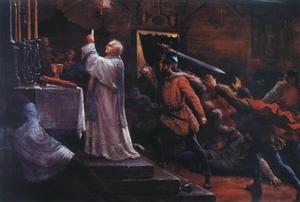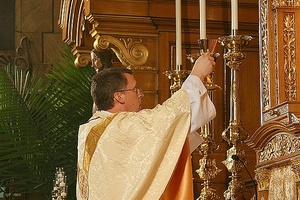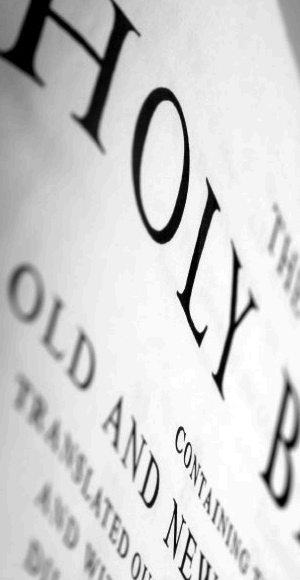
Yesterday, the Holy Father met with the members of the Pontifical Biblical Commission (PBC) led by German Archbishop Gerhard Ludwig Müller, prefect of the Congregation for the Doctrine of the Faith. The theme the PBC’s annual plenary assembly was “Inspiration and Truth in the Bible.” On the personal and parish level, this theme is revisited year-in and year-out. Catholics (and the Orthodox) have a particular way of praying, reading, studying and living the sacred Scripture that is very different from the Protestant ecclesial communities: from WITHIN the context of the living community of faith, i.e., the Liturgy.
Pope Francis paid close attention to this year’s work of the PBC by saying it “affects not only the individual believer but the whole Church, for the Church’s life and mission are founded on the Word of God, which is the soul of theology as well as the inspiration of all of Christian existence.”
He noted that in Dei Verbum the emphasis of what the nature of Scripture is, how the Church interprets Scripture, what is conserved by the Church, and by whose authority is at work. I think one of the “money quotes” is when Francis reminded us that “The interpretation of Sacred Scriptures cannot be just an individual academic effort, but must always be compared to, inserted within, and authenticated by the living tradition of the Church.”
The point we Catholics have to come to understand and to work on is that we are a biblically based religion, like none other, established by Jesus Christ, and preaching Him since 33 AD. We can’t get away from the Scriptures and that’s why bible study AND lectio divina are crucial every day. The Scriptures are testimony of how God works and humanity responds to God’s invitation.
Here is the Pope’s text:
I am pleased to welcome you at the end of your annual Plenary Assembly. I thank the President, Archbishop Gerhard Ludwig Müller, for his greeting and summary of the topic that has been the subject of careful consideration in the course of your work. You have gathered again to study a very important topic: the inspiration and truth of the Bible. It is a matter that affects not only the individual believer, but the whole Church, for the life and mission of the Church is founded on the Word of God, which is the soul of theology and the inspiration of all Christian life .
Continue reading How Catholics use Scripture: Pope Francis talks on inspiration and truth in the Bible
